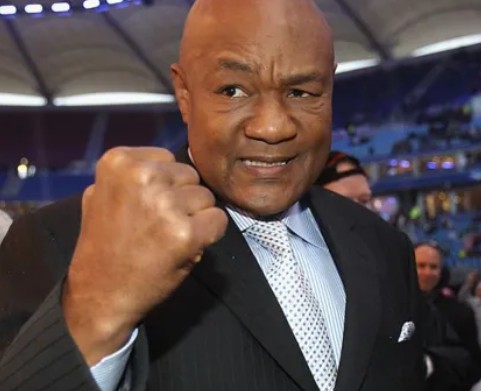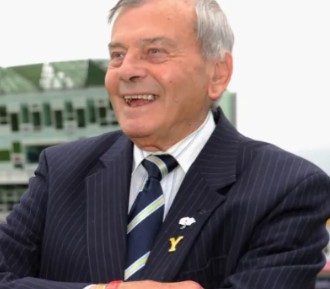Boxing Legend George Foreman Passes Away at 76
George Foreman, the legendary heavyweight boxing champion, passed away on March 24, 2025, at the age of 76, leaving behind a legacy that extended far beyond the ropes of the boxing ring. “Big George,” as he was affectionately known, etched his name into the annals of sports history with a career marked by remarkable resilience, unexpected triumphs, and a captivating blend of power and charisma. From his early days as a gold medalist to his stunning comeback as the oldest heavyweight champion, Foreman’s journey was one of both athletic prowess and personal evolution, a testament to his enduring spirit and unwavering determination. His life story transcended the sport, encompassing a successful business venture that ultimately solidified his financial legacy beyond the realm of boxing.
Foreman’s boxing career commenced with a golden triumph at the 1968 Mexico City Olympics. This early success foreshadowed the power and dominance he would later display in the professional arena. He quickly rose through the ranks, becoming a force to be reckoned with in the heavyweight division. His devastating punching power became his trademark, leaving a trail of knockouts in his wake. This raw strength propelled him to the pinnacle of the sport, culminating in his first world heavyweight title victory. This initial championship reign established him as a dominant figure in boxing, setting the stage for what would become one of the most storied careers in the sport’s rich history.
The “Rumble in the Jungle” in 1974 marked a pivotal moment in Foreman’s career. This iconic fight against Muhammad Ali, held in Zaire, witnessed Foreman’s seemingly unstoppable power meet Ali’s legendary rope-a-dope strategy. Ali’s tactical brilliance ultimately prevailed, handing Foreman his first professional defeat and ending his reign as champion. This loss, while a setback, would prove to be a catalyst for Foreman’s personal and spiritual growth. He took a hiatus from boxing, dedicating himself to religious pursuits and community work, a period of introspection that would ultimately shape the next chapter of his life.
After a decade away from the sport, Foreman made a stunning return to the boxing world in 1987. This comeback, a testament to his unwavering determination and remarkable physical condition, defied the conventional wisdom about age and athletic performance. He steadily climbed the ranks once again, proving that his power and skill remained formidable. This remarkable resurgence culminated in an improbable second world heavyweight championship victory in 1994, at the age of 45, against Michael Moorer. This victory cemented his place in boxing history, making him the oldest heavyweight champion ever and solidifying his legacy as one of the sport’s most enduring icons.
Beyond the accolades and championships, Foreman’s career stands out for its sheer statistical dominance. His final record of 76 wins, with a staggering 68 knockouts, speaks volumes about his punching power. To put this in perspective, his knockout total nearly doubled that of Ali, highlighting the sheer destructive force he brought to the ring. This remarkable knockout percentage underscores his reputation as a fearsome competitor, a fighter who possessed the ability to end a bout with a single, devastating blow. His power, coupled with his resilience and longevity, established him as a unique and formidable force in the history of heavyweight boxing.
While Foreman’s boxing achievements are undoubtedly impressive, his post-fighting career proved equally remarkable. His entrepreneurial spirit led him to license his name for the George Foreman Grill, a decision that would ultimately eclipse his boxing earnings in terms of financial success. This venture demonstrated his business acumen and his ability to connect with a wider audience. The grill became a household name, a testament to Foreman’s brand recognition and the product’s widespread appeal. This unexpected entrepreneurial triumph solidified his financial security and further cemented his status as a cultural icon, demonstrating that his influence extended far beyond the confines of the sporting world.
Share this content:












Post Comment